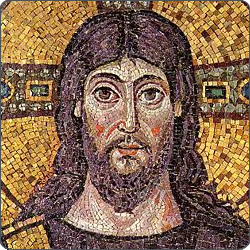By the Rev. Elisabeth Hartwell
RCL Reflection, Fifth Sunday of Easter,
Year A
Click here for the readings
May 7, 2023
Key verse: And if I go and prepare a place for you, I will come again and will take you to myself, so that where I am, there you may be also. -John 14:3
Dear fellow preachers,
If you’re like me you’ve shared John 14:1-14, or selected verses from this passage at countless funerals, memorial services, and graveside interment services. As you’ve looked out into your congregation, a sea of somber, grief-filled faces, you’ve leaned on this text to lend some measure of comfort and peace. After all, when looking death squarely in the face, what better consolation is there than to imagine the place in heaven set aside specifically for someone you’ve loved? What hope could be greater than the assurance that we will all, ultimately, find our way home to Jesus?
Still, although this text appears comforting at first, upon further examination it actually holds quite a bit of tension. There’s a lot at stake here as Jesus speaks to his disciples, on the final night of his life, during his farewell discourse. What’s at stake is no more and no less than how we’ll manage to live without Jesus’ physical presence in our world.
We might say that to have faith is to have a relationship with Jesus. But how are we supposed to have a relationship with someone we never physically see? How do we trust that Jesus has, in fact, gone to prepare a place for us when there’s so much dysfunction and chaos on this side of heaven? How does it become possible to cling to the promise of eternal life when we don’t have any concrete assurance it actually exists?
Fellow preachers, we might remind our congregants that to have faith is to live simultaneously in two realities: the here and now and the hereafter. Each of these realities proves to be powerful forces in our lives. It’s a bit like following a trail of breadcrumbs knowing that, at long last, they will lead us home. We aspire to be faithful stewards of the tension in which we constantly live.
I once knew a very wise, seasoned pastor who described death as a form of birth. Oftentimes, he would compare our birth into this world with our eventual birth into eternal life. He imagined that the blinding light we’d experience upon crossing the threshold into heaven would be similar to the blinding light we experience when we’re first born as infants. I love his analogy. But all the same, fellow preachers, you know as well as I do that even before we’re finally born into eternal life, our lives are constantly evolving and changing. In a sense, we’re continually being born and reborn. How do we know Jesus still remains with us even as we journey through life and faith? Our text is a powerful reminder that always, in each season of life, Jesus makes a way for us. Our work is to become attuned to the paths he lays for us and to faithfully travel upon them. In this way, we remain loyal to Jesus even as he remains loyal to us.
Ultimately, John 14:1-14 is about relationships: Our relationship with Jesus, his relationship with us, the relationship shared amongst the three persons of the Triune God, and the relationship between this life and the life that is to come. It brings assurance that all of these relationships are held in beautiful tension with one another, affording us hope and comfort.
In Worship
The theological concepts in John 14:1-14, while poignant, are also intellectually complex. Hymns and music can be used in the service to really touch congregants at a heart level and not just a head level. Some of the hymns that come to mind are “Be Thou My Vision,” “Precious Lord, Take My Hand,” and “Give Me Jesus.” The prayers for the day can also reach congregants at a heart level, by holding in tension the difficult realities we face in the here and now with the promise of eternal life.
Worship with Youth
Invite youth to think about their favorite place to be. Ask them to imagine this place and to reflect upon why it makes them feel safe and at peace. Then, take some time to walk through the first several verses of John 14. Tell them about the context (Jesus’ final night with his disciples and his farewell discourse) and share with them how important it was to Jesus to reassure them they’d be okay without him physically present in their midst. Suggest to youth that when they go to their favorite place, they can imagine that Jesus is there with them, giving them peace and comfort.
Worship with Children
Talk with kids about how they’re able to find their way forward when they’re in the dark. Suggest that a flashlight can be helpful, and experiment by holding a flashlight in front of you and shining light forward. Explain that Jesus is sort of like a flashlight, that he shines light to show us where to go. Share the first several verses of the scripture, saying that when Jesus said these words he was speaking to his close friends who were feeling afraid. Just as his words helped them find their way forward, he can also help us find our way forward.
The Rev. Elisabeth Hartwell serves as pastor of Hiland Presbyterian Church, Pittsburgh, Pa.
Here are previous SOLI
reflections for Easter 5A:
2020 – Inconvenienced?
Or all in?
2017 – Once
upon a time? Or now?
2014 – Stewards
of the promise (Part 2)
2011 – That
was then, this is now




Leave a Reply